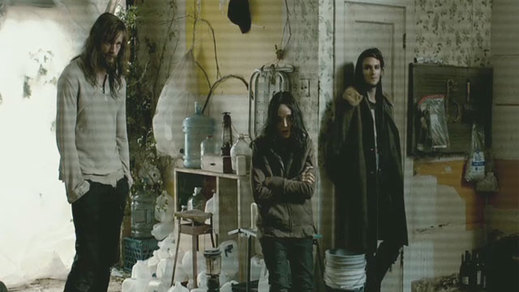 Sarah Moss, a former FBI agent, has just started a new career at Hiller Brood, an elite private intelligence agency that aims to protect the interests of its corporate clientele. Sarah is handpicked by the head of the agency, Sarah, to infiltrate The East, an elusive anarchist collective that seeks revenge on major corporations for their crimes against the environment. Determined to prove herself to her new boss, Sarah quickly locats the group but underestimates her ability to stay emotionally detached from this anarchist group. Zal Batmanglij's The East is a suspenseful espionage thriller that is well-paced and engaging but it ultimately falls victim to extreme bias. This is an incredibly angry film about Eco-terrorism and because of this, the film is far too one-sided and laughable in its attempt to evoke change. My main problem lies in how every corporate boss and antagonist to The East is a caricature of big business - one note, extreme individuals who don't care at all about people's suffering. The film could have easily fixed this by giving some of these antagonistic characters some depth but it instead ops to show us these one-dimensional characters to serve the motives of the filmmakers. The East is full of interesting ideas but the film never does much besides scratch the surface. The film fails to truly capture how The East is no better than the people they wish to punish, or how the members are no better than the average American, following their leader blindly. The strongest aspect of the film revolves around the toll the double life has on Sarah's psyche. It captures Sarah's growing familiarity and emotional attachment well, but unfortunately ops for a silly relationship/love subplot that feels forced and completely unnecessary. The East is a film made by people angry for change, but in crafting a story that's one-sided and manipulative, it fails to have much impact at all. 5/10
0 Comments
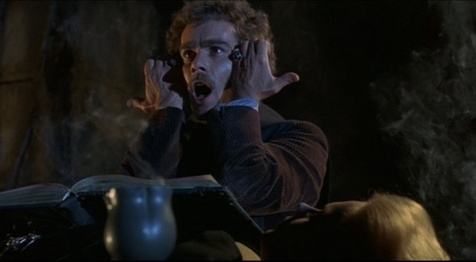 Wilbur Whateley, an odd, creepy young man, shows up at Arkham Miskatonic University to borrow the legendary Necronomicon from Dr. Armitage. Wilbur believes the book provides the key to open a doorway to another dimension but Dr. Armitage refuses his request. This leads Wilbur to hypnotize Nancy, one of Dr. Armitage's assistants, and bring her back to his home to begin the preparations. Wilbur intends on sacrificing Nancy to these unspeakable creatures from the other realm known as "the old ones', with Dr. Armitage being the only man standing between Wilbur and unspeakable evil. Daniel Haller's The Dunwich Horror is a film that's very much a bi-product of the time it was created. The Dunwich Horror plays like a very loose commentary on the battle between the establishment and counter-culture but what I found way more interesting is the creative style the film exudes. I have no idea whether The Dunwich Horror was considered a low-budget effort but it certainly feels that way. While that certainly isn't praise, the The Dunwich Horror consists of quite a few inventive tactics to relay the horror and dread. The film is loaded with style, from a rich, albeit slighly overbearing score, to some stylish camera work, the film creates an eery, effective atmosphere. This certainly fits in with the overly stylish horror films of the late 60s/early 70s which relied on lots of editing and visual trickery to relay horror. Of everything The Dunwich Horror has to offer, I would actually argue that the cinematography is the films best attribute, with an abundance of voyeuristic angles and camera movements to really set the tone and elicit emotion, giving the film almost an hypnotic effect. Dean Stockwell is absolutely fantastic, giving one of the best creepy guy performances I've seen in awhile. His portrayal of Wilbur is restrained yet terrifying and a lot of the horror works because of his brooding performance. Make no mistake, The Dunwich Horror is a cheesy horror film by today's standards but it's without question worth watching, especially for filmmakers looking for creative ideas when it comes to extreme low-budget features. 7/10 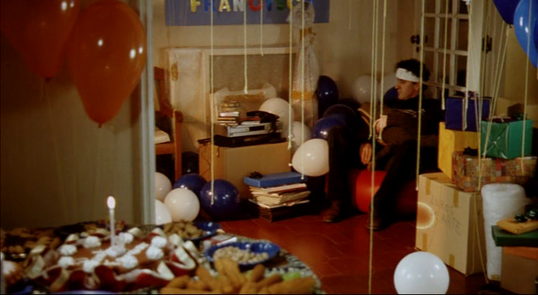 Francisco is a school teacher who doesn't appear too happy with how his life turned out. A kid at heart, Francisco feels shackled by his current situation wanting nothing more but to be free to do whatever he wants. On his 30th birthday, he falls ill with the measles, forcing him to get as much rest as possible. While he sleeps, he dreams of seven alter egos taking care of him in a country house. Miguel Gomes' The Face You Deserve is a surreal, free-flowing drama comedy that is a long-winded allegory about arrested development. This film falls well outside of standard narrative and genre conventions, making it a film that is sure to be very divisive. Some will find the film infuriating and boring while others will find it incredibly creative and unique. In the beginning, the film invests a lot of time introducing this sullen character, Francisco, capturing his child-like behavior that is deemed immature by adult standards. What's interesting is just when the audience is beginning to get attached to this tragic/comedic figure, the setting shifts, introducing us to the seven alter-egos of his dreams. What follows is a surreal and absurd story of seven friends, with Gomes drawing much inspiration from children's fairy tales/ fables like Snow White and The Ugly Ducking. For a debut feature, there is much to like about The Face You Deserve from its lavish set design to its incredibly playful tone. Gomes does a remarkable job at capturing the creative energy of children and it shows throughout the film. Unfortunately I did find The Face You Deserve to be overlong, given its subject matter, with tepid pacing that really seemed to hurt my overall satisfaction with the story. Arrested Development is a theme in films that really speaks to me and yet I never felt a strong connection on an emotional level. Miguel Gomes' The Face You Deserve is a unique experience and while it didn't resonant with me as much as it should have, there is no denying the talent Miguel Gomes displayed with this debut. 6.75/10 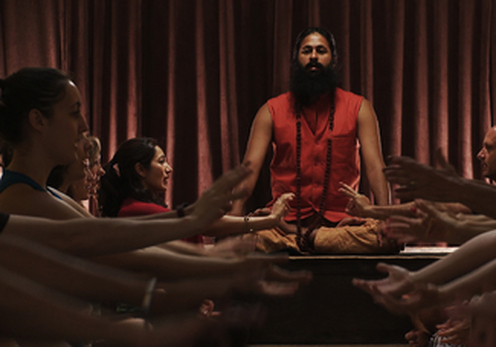 Vikram Gandhi is an Indian-American born in New Jersey. Becoming tired of the growing trend of Guru's establishing themselves in the United States, Vikram decides to impersonate a wise Indian Guru and build a following in Arizona. What begins as what can only be describe as an elaborate prank in order to explose the absurdity of blind faith, becomes so much more, as Kumare begins to form profound connections with people from all walks of life. Vikram Gandhi's Kumare is a powerful and profund documentary exploring the link between spirituality and identity. While the film could have easily veered into a rather mean-spirited expose of blind faith, it instead fortifies the need for people to find their own identity, with spirtuality serviving as part of the process. What makes Kumare so fascinating is not how Kumare exposes the triviality of these Gurus but how we see Vikram's own spirit transform in front of the camera. The sequence towards the end of the film is particularly affecting, as Vikram preps to reveal his true identity to his disciples and in doing so, reveals the greatest teaching of all. Everyone in the world is looking for happiness, searching for understanding and what this film suggests is much of this can be found in oneself. I could see some people viewing this film as a damnation of spirtuality, questioning the morals of Vikram Gandhi's method, but for me the film beautifully captures the difference between spirtuality and spiritual leaders. Vikram Gandhi's Kumare is an insightful and endearing journey into spirtuality, capturing the importance in believing in oneself. 7.75/10 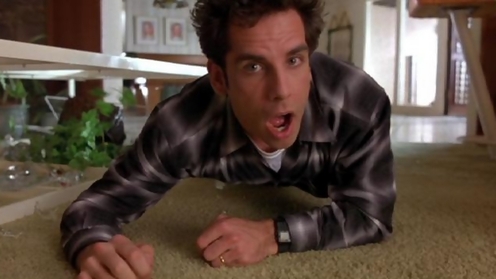 On the surface Mel seems to have a good life, he has a beautiful wife, Nancy, and a four-month old son but he remains haunted by not knowing the identity of his parents. You see, Mel was adopted and is desperate to understand why his mother gave him away years ago. Much to the annoyance of his parents, Mel decides it's time to meet his birth parents, setting off with Nancy and Tina, a psychology student, who has offered to capture the reconcilliation on video for a research project, to find his biological parents. David O. Russell's Flirting with Disaster is a wild, zany trip of self discovery that is certainly entertaining, though lacking in terms of emotional resonance. This is one of those cinephile blind-spots that has been following me around for awhile now and I figured it was time to stomp it out. Flirting With Disaster has a nice narrative rhythm following a series of events that get more and more outlandish as Mel searches for his biological parents. The film is certainly satirical, with much of the adventure being this form of exaggerated reality. This gives the film a great amount of comedy but I felt it took away from the real story - Mel's desire to find his mother blinding him from his own troubles taking place in his marriage. The dramatic force of the story takes too much of backseat for me, but I could see why this doesn't bother most viewers. Flirting with Disaster's biggest strength is a great supporting cast, from George Segal and Mary Tyler Moore as Mel's overprotective adopted parents, to Richard Jenkins and Josh Brolin as homosexual police officer's who tag along for the ride, the collective cast of characters are refreshing and unique. In terms of visuals, Flirting With Disaster is a very controlled hand-held/static composition hybrid, which does a good job at capturing the film's spontaneity while never being overly complicated or distracting to the story. In the end, David O Russell's Flirting With Disaster is a fun, well-written satirical film that sacrifices some of its dramatic impact for laughs. 7/10 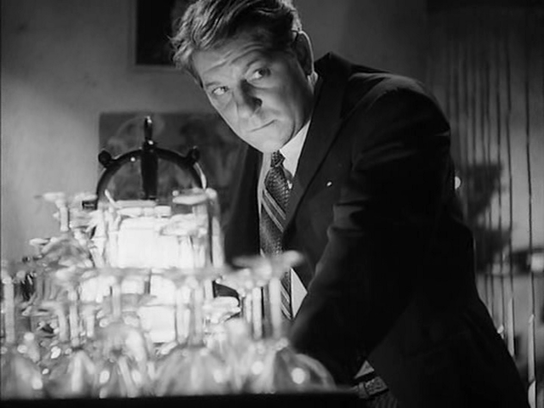 Lucien, a good looking, colonial Calvary officer, spends most of his time fraternizing with as many woman as possible. When he grows tired of them, he leaves them and moves on to the next woman who catches his eye. When he meets Madelene, a beautiful woman who lives a life of luxury, things are different. Lucien falls head over heels with Madelaine but after their brief encounter in Cannes, she leaves him and returns to Paris. In love for the first time, Lucien heads to Paris to find her only to find heartache once again. Jean Gremillion's Lady Killer is a deeply tragic tale of love that captures the unequivocal power of being in love, along with the positives and negatives, in a way that most films seem to marginalize. Before Lucien meets Madeleine, the film spends time showing how smooth of an individual Lucien, seeing his smooth talk and womanizing in full force. By capturing how Lucien smooth talks his way through life with little worry, the film achieves an even stronger emotional response when Lucien falls madly in love with Madeleine. In Gremillion's film, Love is not treated as some definable entity, but a force that consumes our souls for better or worse. It explores the ties between love and death, a connection which is solidified in the final act of Lady Killer where Lucien finds himself embittered and alone, owning a small rundown cafe. Without going into details, which are better left to discover oneself, the final meeting between Lucien and Madeleine perfectly captures these ties, while showcasing just how hard it truly is to let go of something one loves. In most movies Lucien would have simply shoved Madeleine aside during the climax, but Gremillion reminds the viewer that love is not nearly as logical as many seem to make it. I'm beginning to understand why some consider Jean Gabin one of the best actors of all time, and between his performance as Lucien and a few of his other memorable roles, I certainly wouldn't fight the notion. Jean Gremillion's Lady Killer is a profound exploration of love, capturing the 9/10 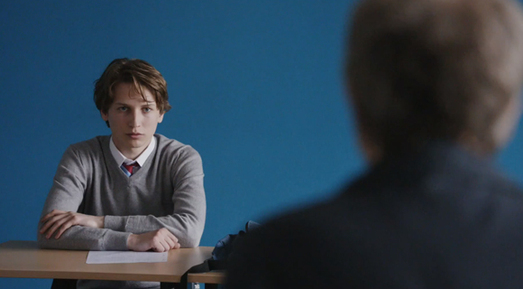 Germain, an English teacher works at the local high school where he becomes more and more disenchanted with today's youth. Between the school adapting new teaching strategies that baby the students to modern technology making his students less and less likely to read, Germain has grown cold to teaching entirely. All of this changes with the arrival of Claude, a very gifted writer who Germain sees greatness in. Francois Ozon's In The House is a unique and engrossing film exploring the seductions of storytelling and how fiction and fact intermingle in life. The driving force behind the narrative of In The House is Claude, a massive loner, who insinuates himself into the house of a fellow student. Writing about his experiences at his friends house, his essays are what grabs Germain's attention, with much of the narrative unfolding around Claude's perceptions of what goes on in his friends household. Ozon's film is loaded with style, beautifully capturing the inner-workings of this family both through Claude's perception and reality. As the film goes on, the lines becomes increasingly blurred as to what is fact and fiction, with Claude's own imagination taking over. In a way, Ozon's In The House is his ode to storytelling, capturing how perception and reality both play an intricate part in developing "truthful" characters and story dynamics. Ozon's seems to suggest that being a truly great writer goes hand and hand with isolation, as both Claude and Germain become loners, slaves to their wandering minds. No matter how fascinating Ozon's film is, It never really tries to explore the character of Claude. Claude is a child whose very much on his own and I think the film could have gained much more resonance by exploring how his loneliness and isolation molded the person he becomes by the end of the film. While Francois Ozon's In The House is a cleverly structured exploration of storytelling, it lacks the emotional resonance to be something truly special. 7.5/10 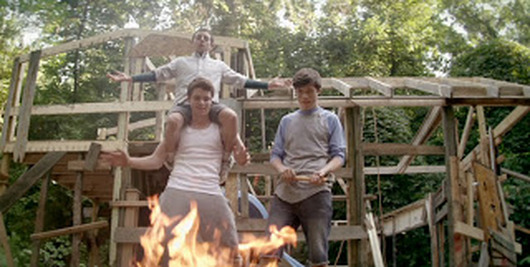 Two teenage best friends, Joe and Patrick, share the same level of disdain for living under their parent's rules. In the ultimate act of independence, the two best friends decide to runaway, spending their summer building a house in the woods and living off the land. Being only two people, Joe and Patrick also bring in the help of Biaggio, an eccentric and unpredictable oddball, to complete their house in the woods. Free from their parent's rules, the boys summer quickly becomes a test of friendship and family as they struggle to find themselves. Jordan Vogt-Roberts' The Kings of Summer is a coming of age story thats greatest strength lies in its ability to capture the teenage angst associated with independence. Joe is the main protagonist of the story - a boy whose grown distant from his father since his mother died. This is the meat of the dramatic storyline but unfortunately the Kings of Summer never does enough to really capture how much Joe has been affected by the loss of his mother. The audience is repeatedly reminded of it sure, but I never felt that I was shown this through the character's point of view. I believe this is also the main reason why I never felt particularly sympathetic towards Joe as a character, as he came off more like a brat than a kid who is emotionally damaged. A lot of the characters of The Kings of Summer are larger than life, from Biaggio's extremely strang character to the the exaggerated motif of Patrick's controlling parents. This larger than life persona the film carries makes it a very fun comedy but I believe it also ends up hurting the emotional impact of the drama. I'm not denying how well the film captures youthful exuberance but the actual coming of age dramatic storyline centered around Joe and his father just doesn't resonate as well as it should have. The Kings of Summer succeeds much more than not because of its ability to transport the viewer back to adolescence, creating a comical and nostalgia filled journey. 7/10 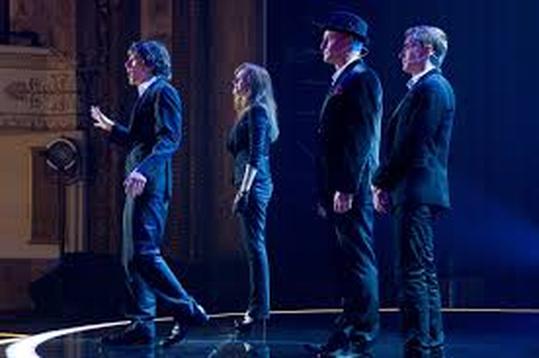 Street Magicians Jack Wilder, Henley Reeves, J. Daniel Atlas, and Merritt McKinney make up the latest new attraction in Vegas - The Four Horsemen, a team of the greatest illusionists. When conducting their latest trick, the group robs a bank of nearly 3 million dollars. This leads FBI agent, Dylan Rhodes, and Interpol detective, Alma Dray, on a mission to track down this team of illusionists and discover how they did it and/or what their true intentions are. Louis Leterrier's Now You See Me is a film that treats the audience like an idiot, hoping you will buy into the escapism and not ask too many questions. The cast is a rather odd ensemble of Jesse Eisenberg, Woody Harrelson and Isla Fisher and while the first two certainly make sense in their respective roles, Isla Fisher felt incredibly miscast and out of place. On the surface, Now You See Me is a rather unique heist film focusing on the cat and mouse game which ensues between 'The Four Horsemen' and the FBI. Early on, the film really keeps the viewer in the dark as to what is going on, leaving them in the dark about almost everything. One of the main problems with Now You See Me is that it simply lacks any POV, seemingly unsure who the main character's are. One could make an argument that this is intentional but what occurs because of this lack of POV is a film that feels overly convoluted and muddled. I could live with this type of thing but the climax of Now You See Me simply left me infuriated. This is a film that doesn't understand the difference between tricking the audience and cheating the audience. The twist is so out of left field and borderline nonsensical that when it happens the viewer doesn't feel much of anything. Now You See Me is a concept with potential but unfortunately it's a film that just feels thrown together around this silly twist ending, leaving the viewer feeling completely cheated about the whole intriguing experience. 4/10 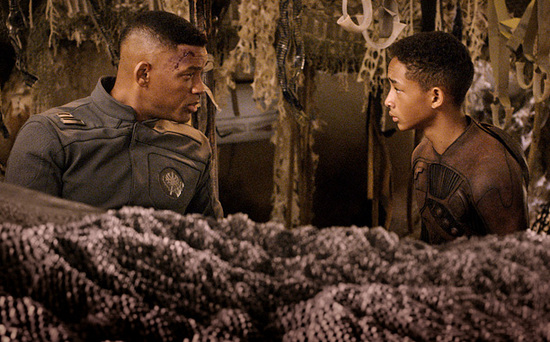 Set 1000 years in the future, After Earth tells the story of a crash landing which leaves teenager Kitai and his father, Cypher, stranded on Earth. Earth is not the way we once knew, with cataclysmic events forcing humanity to abandon the planet and everything that remains evolving to kill. While Cypher is a highly decorated warrior, he is left severely hurt in the crash, forcing Kitai to embark on a perilous journey to signal for help. After Earth is the latest film from M. Night Shyamalan and given the incredibly negative critical response, I was expecting a bad film. Film critics are incredibly fickle creatures who seem to form biases towards certain filmmakers and After Earth is a great example of this. After Earth is not a great film, but it's a fun sci-fi adventure that consists of some well thought out father-son character dynamics. Cypher is a well drawn out character, a stern and highly skilled soldier whose done many great things for humanity, even with it leading to a growing distance between him and his son. Kitai on the other hand wants nothing more than to prove his strength to his father, and the film does a nice job of spending equal time with both of these characters, capturing their regrets, fears, etc. Shymalan is a filmmaker that people just enjoy to hate and it's unfortunate because he is a solid director (though a horrible writer). With After Earth he once again shows his talent for creating suspense, using some strong sound design and visuals that manage to evoke tension. Jaden Smith is without question the weak link of the film. He just lacks the talent and charisma of his father and I think they made a big mistake going with a 15 year old instead of making Kitai between 17-18. Visually After Earth doesn't consist of the best special effects you've ever seen but they are absolutely adequate and succeed at transporting the viewer into the world. In the end, I am quite shocked at the horrible reviews After Earth has received as it's an effective sci-fi thriller that is also quite heartfelt in telling the story of father and son. 6.75/10 |
AuthorLove of all things cinema brought me here. Archives
June 2023
|
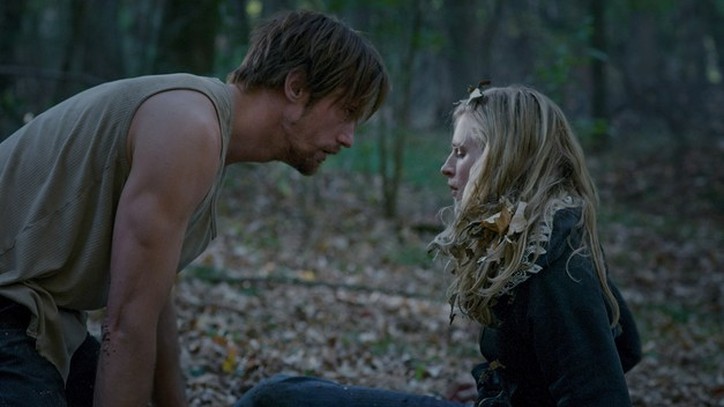
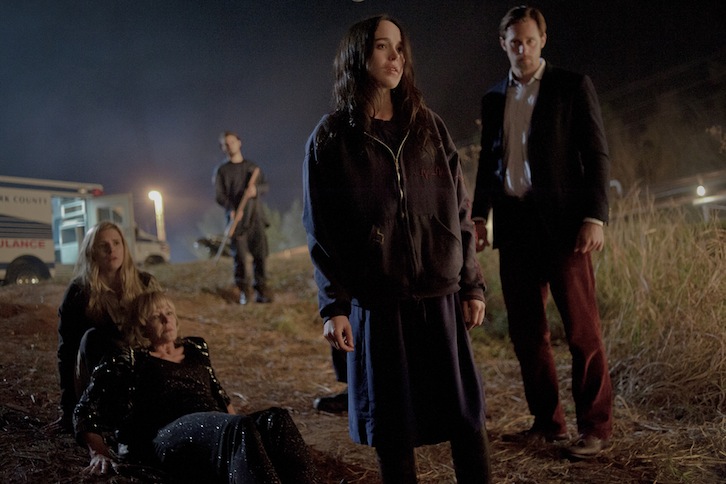
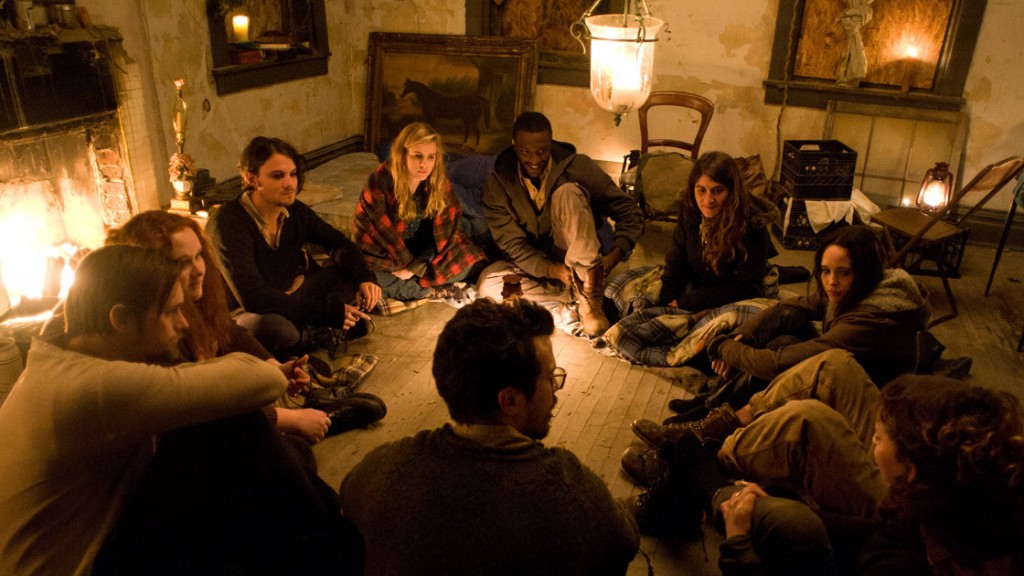
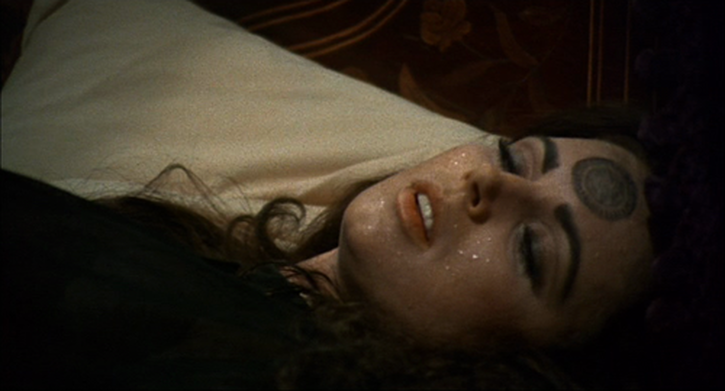
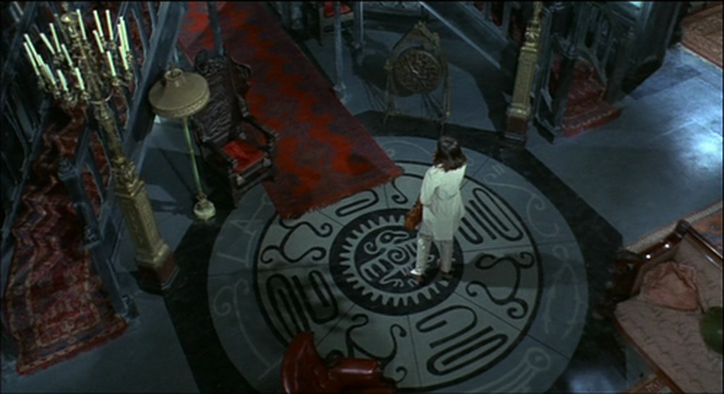
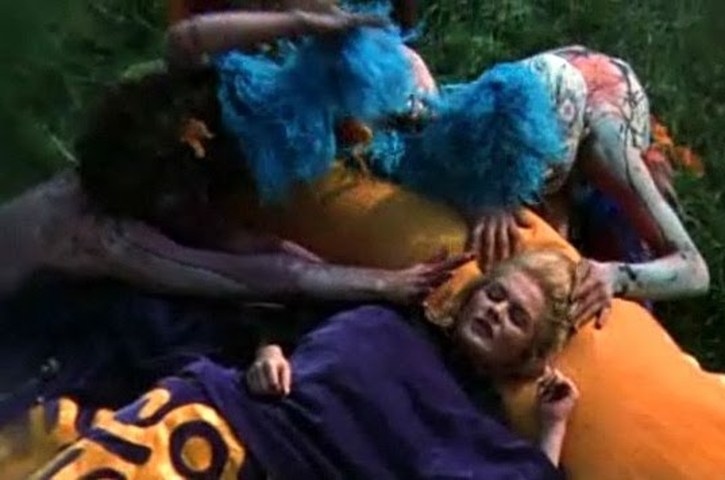
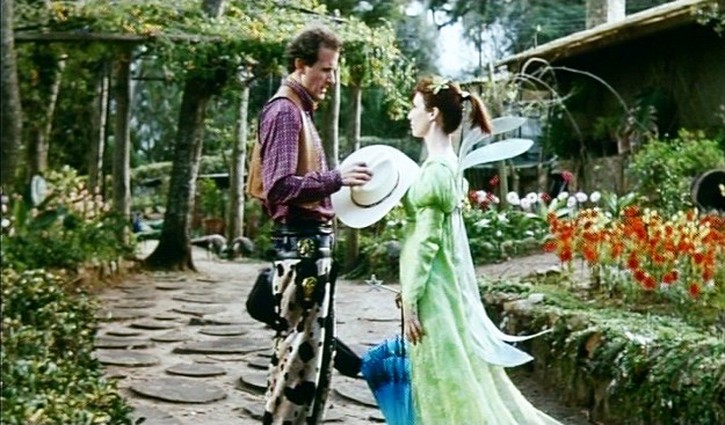
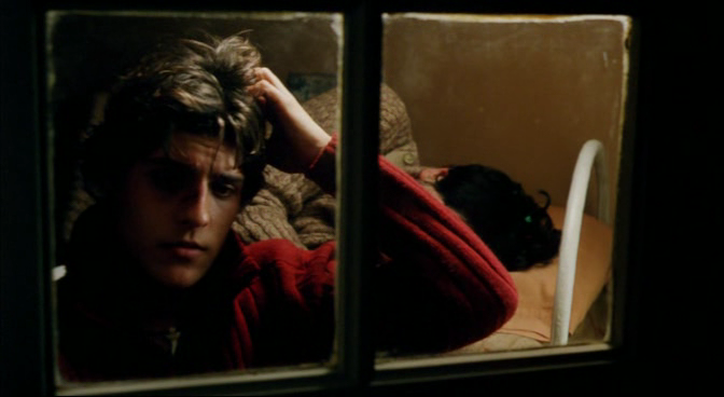
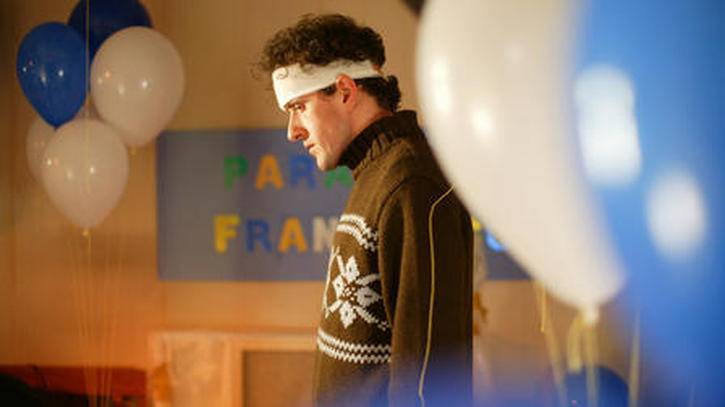
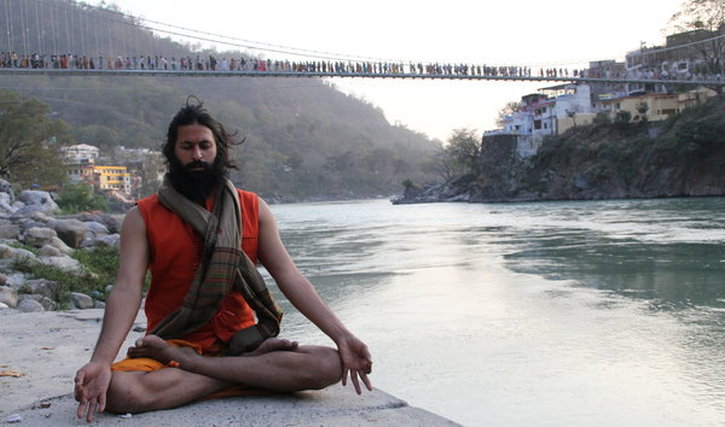
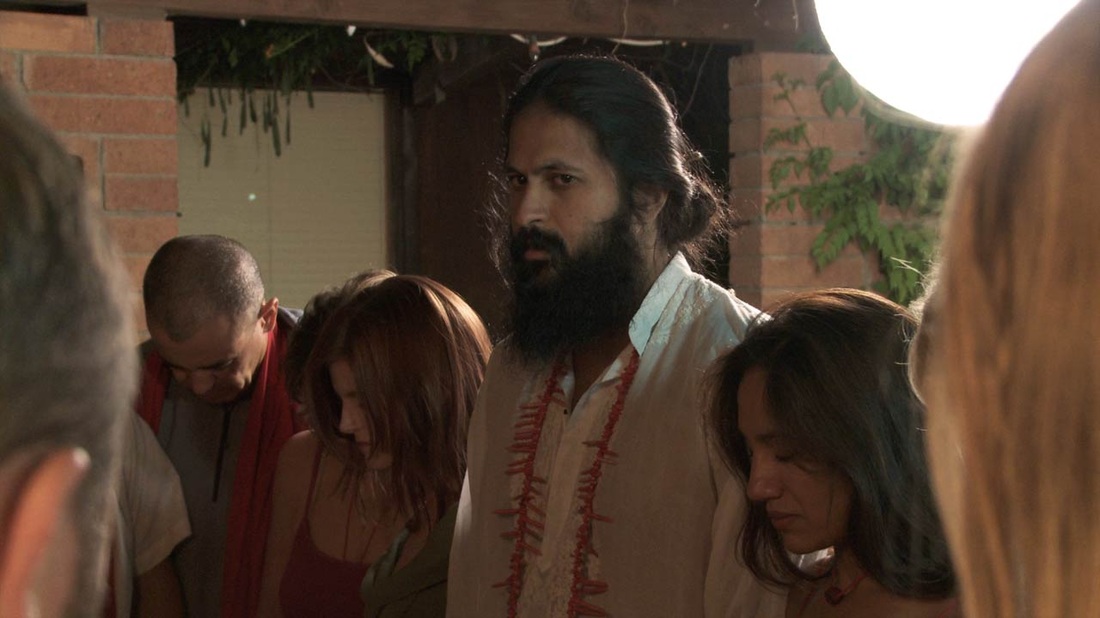
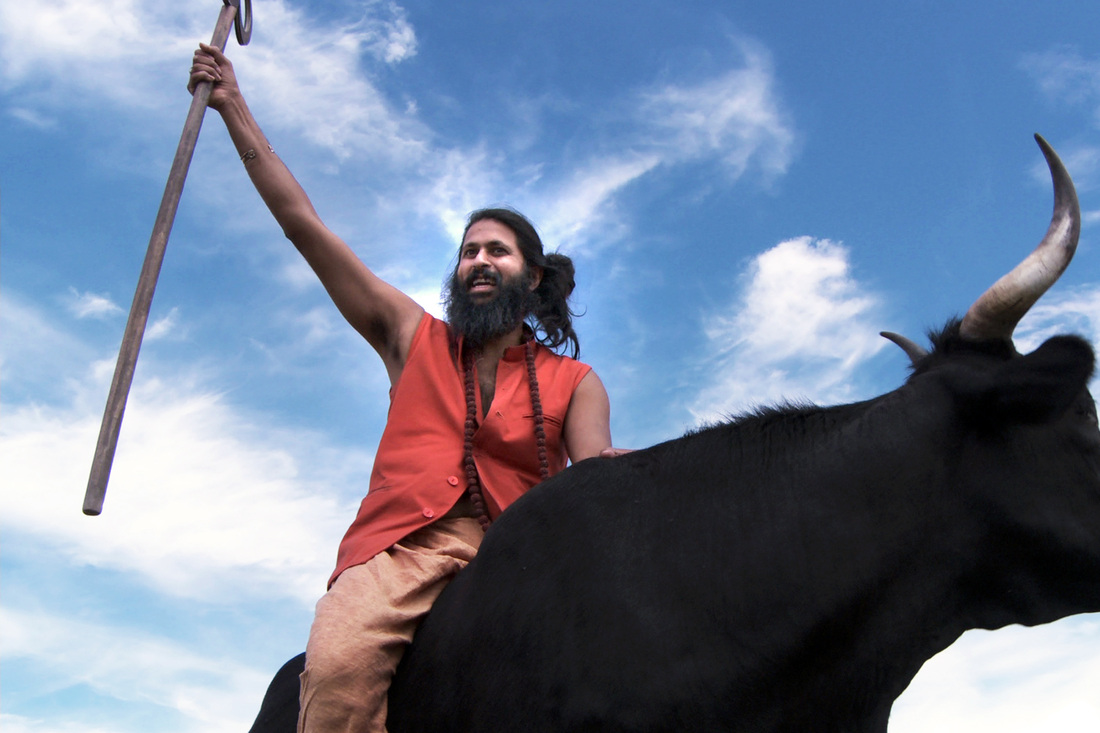
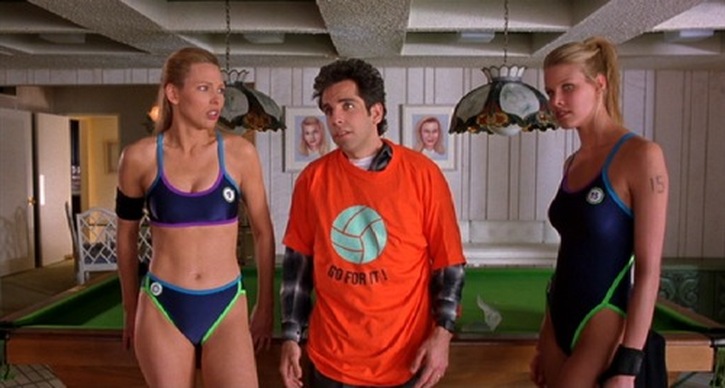
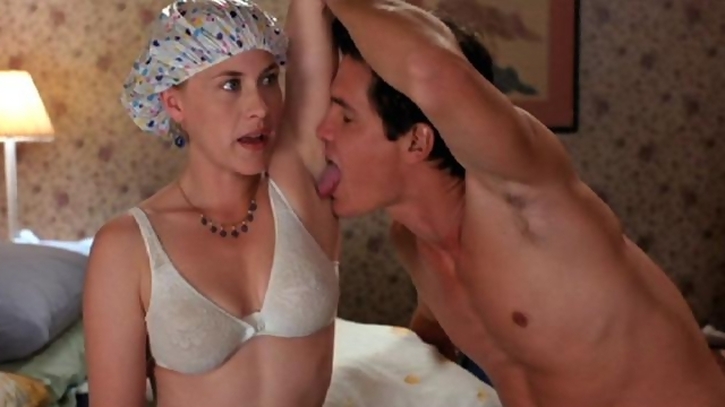
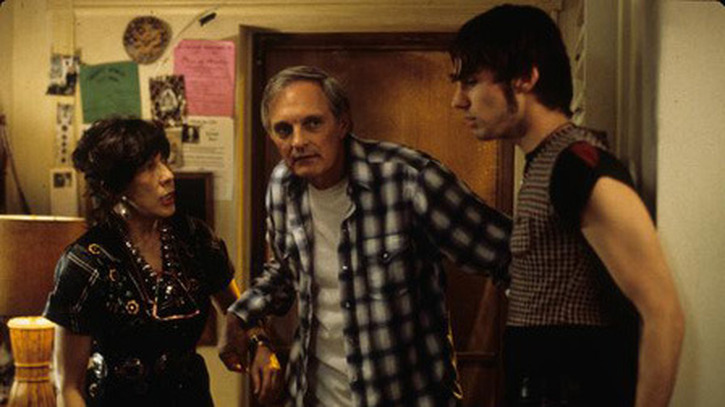
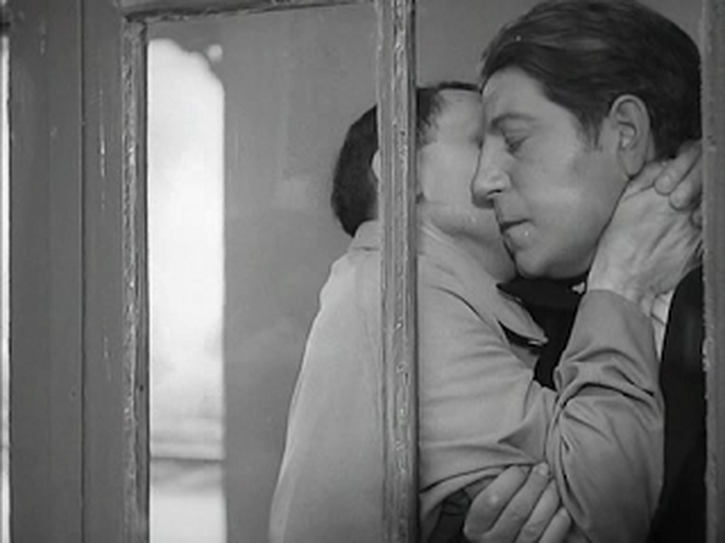
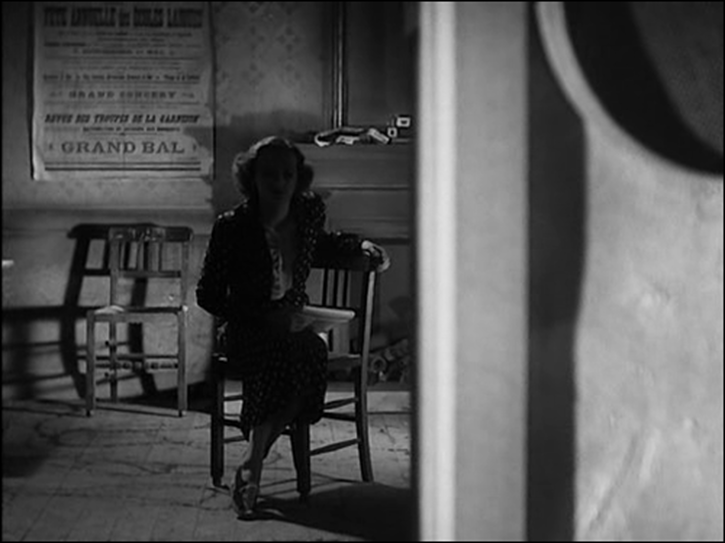
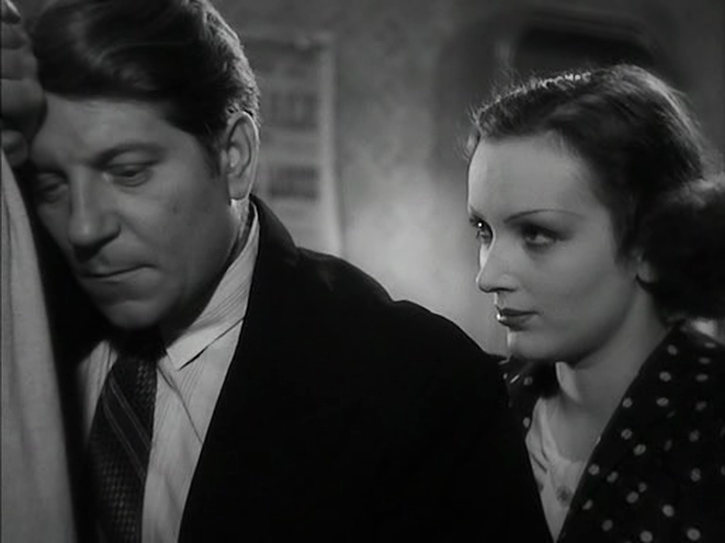
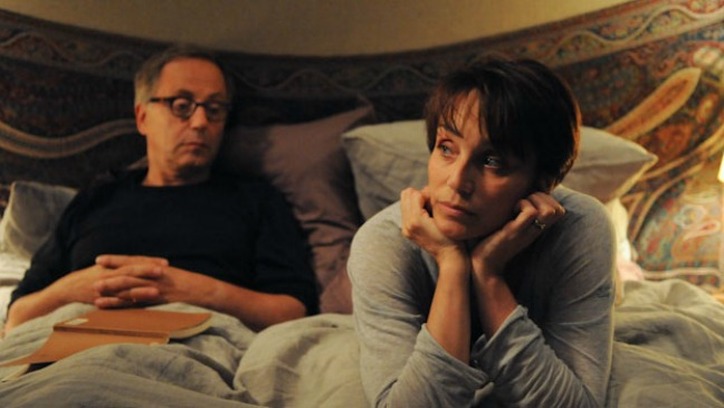
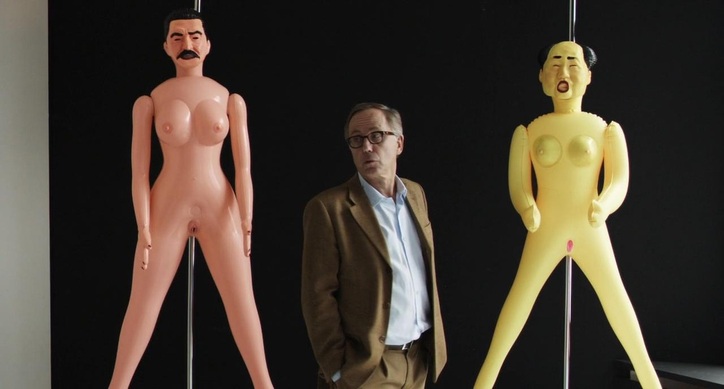
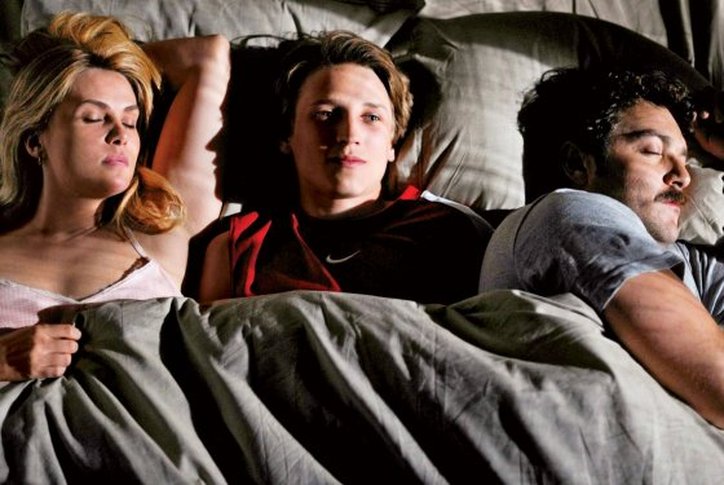
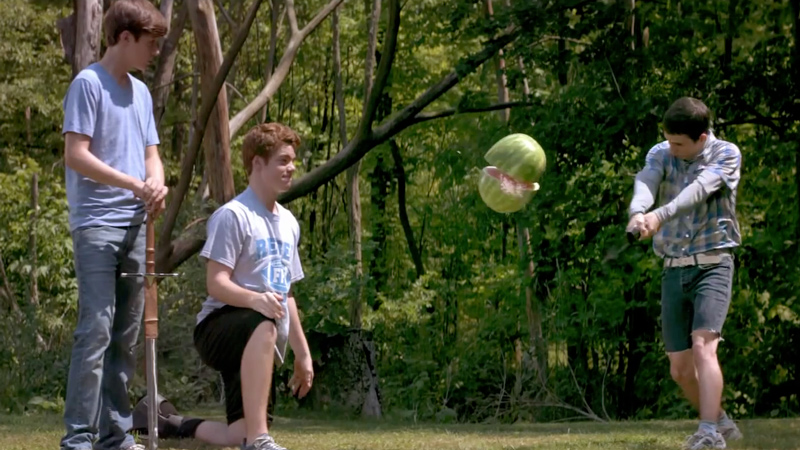
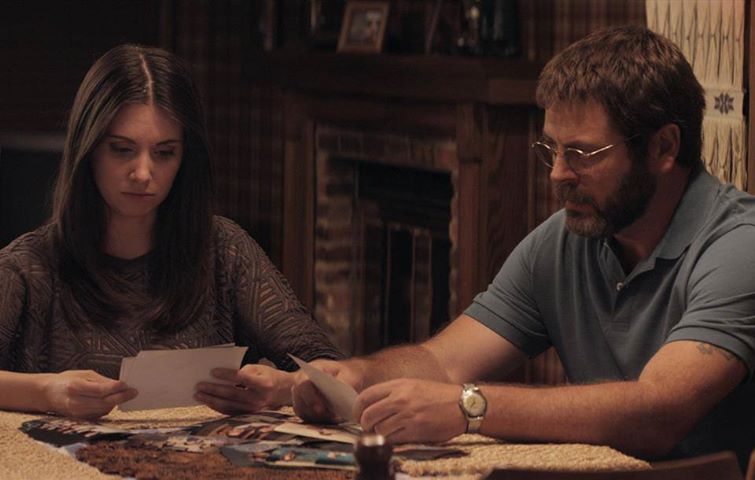
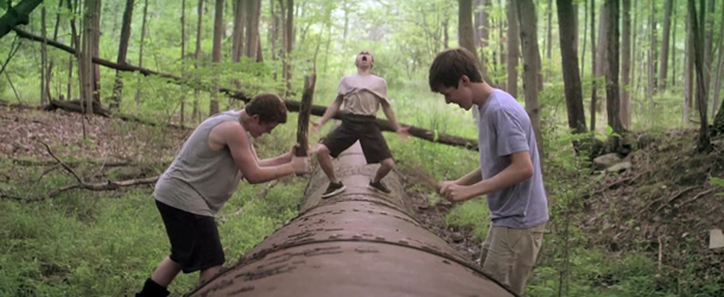

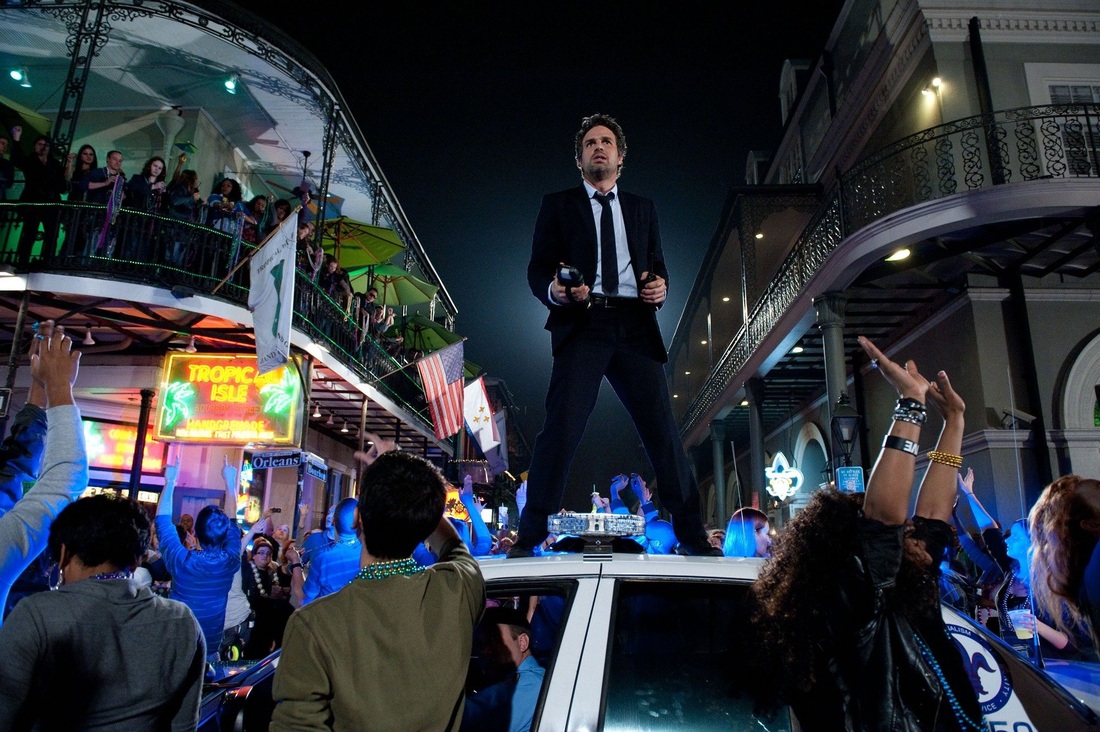
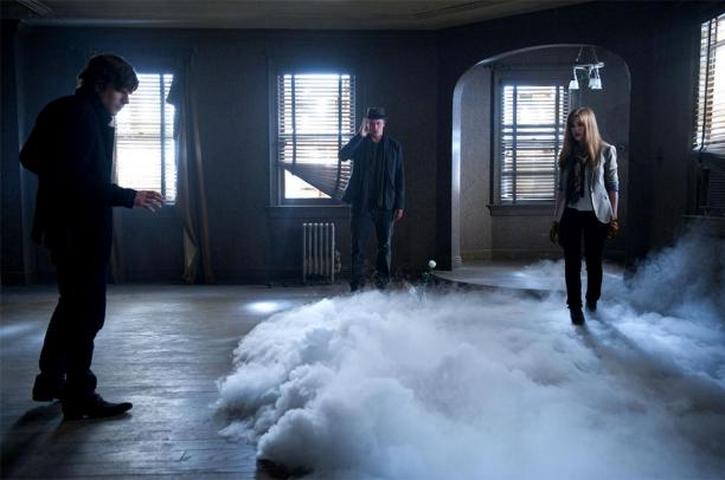
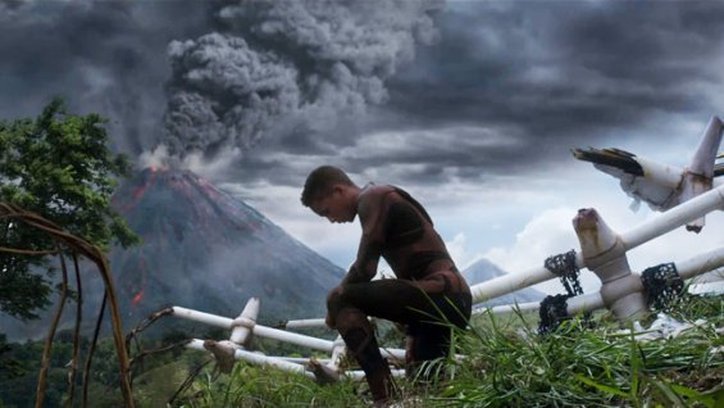

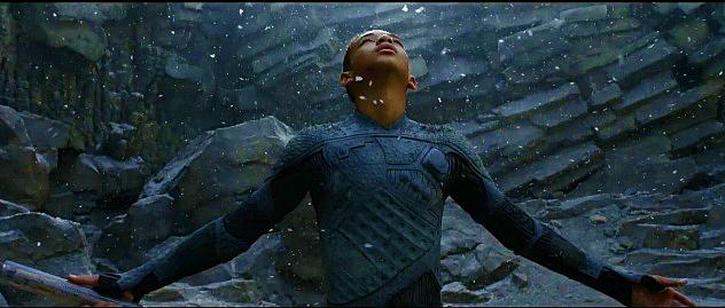
 RSS Feed
RSS Feed
